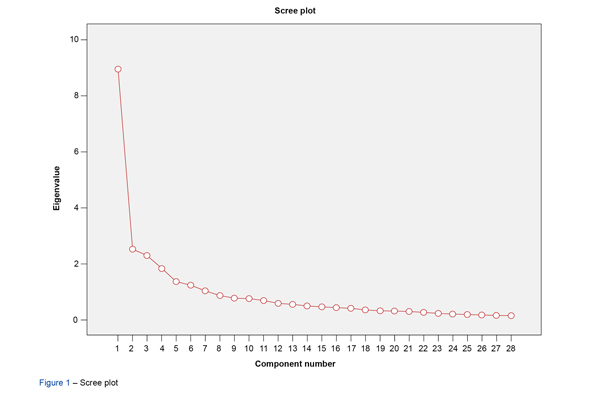SOCIAL MEDIA
Portuguese Medical Association's Scientific Journal

Introduction: Stigma is associated with poor prognosis of illness and reduced help-seeking behavior, self-esteem and treatment compliance. The aims of this study were to study the reliability and construct validity of the King’s et al Stigma Scale, and its association with Illness and Help-Seeking Behaviors scale (IHSBS) scores.
Material and Methods: One hundred and forty mental health patients filled out the Stigma scale and the Illness and Help-Seeking Behaviors scale. The exploratory factor analysis of the stigma scale was performed, and its reliability studied. The correlation analysis was used and mean differences in Stigma Scale scores among IHSBS groups were explored.
Results: The exploratory factor analysis indicated four factors (F): F1-Disclosure, F2-Discrimination, F3-Acceptance and F4-Personal Growth, which showed acceptable/good internal consistency (α from 0.70 to 0.91). Help-seeking behaviors were not associated with stigma. The levels of Discrimination were high in the group with global high-IHSB and in patients with medium/high illness behavior (IB) and health-related worries (HW). Additionally, Disclosure and overall stigma levels were higher in groups with high-HW and with medium-IB scores (when compared with the group with low-IB). The group with low-IB also had lower levels of Acceptance and Personal Growth when compared with the groups with medium-IB and high-IB, respectively.
Conclusion: The Stigma Scale (27 items) is a valid, reliable instrument and useful tool to assess stigma in mental health patients.
Click here for the full paper.